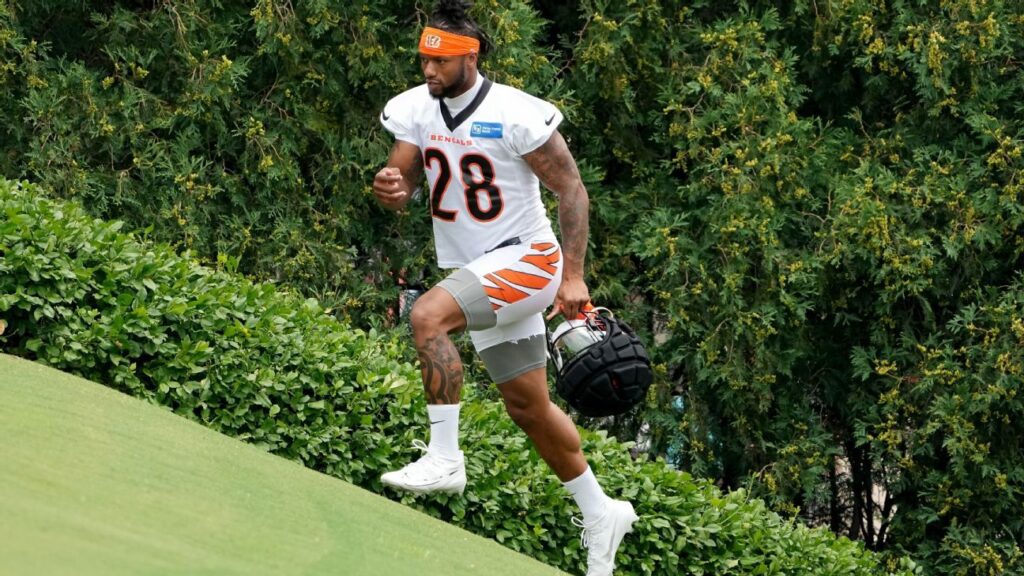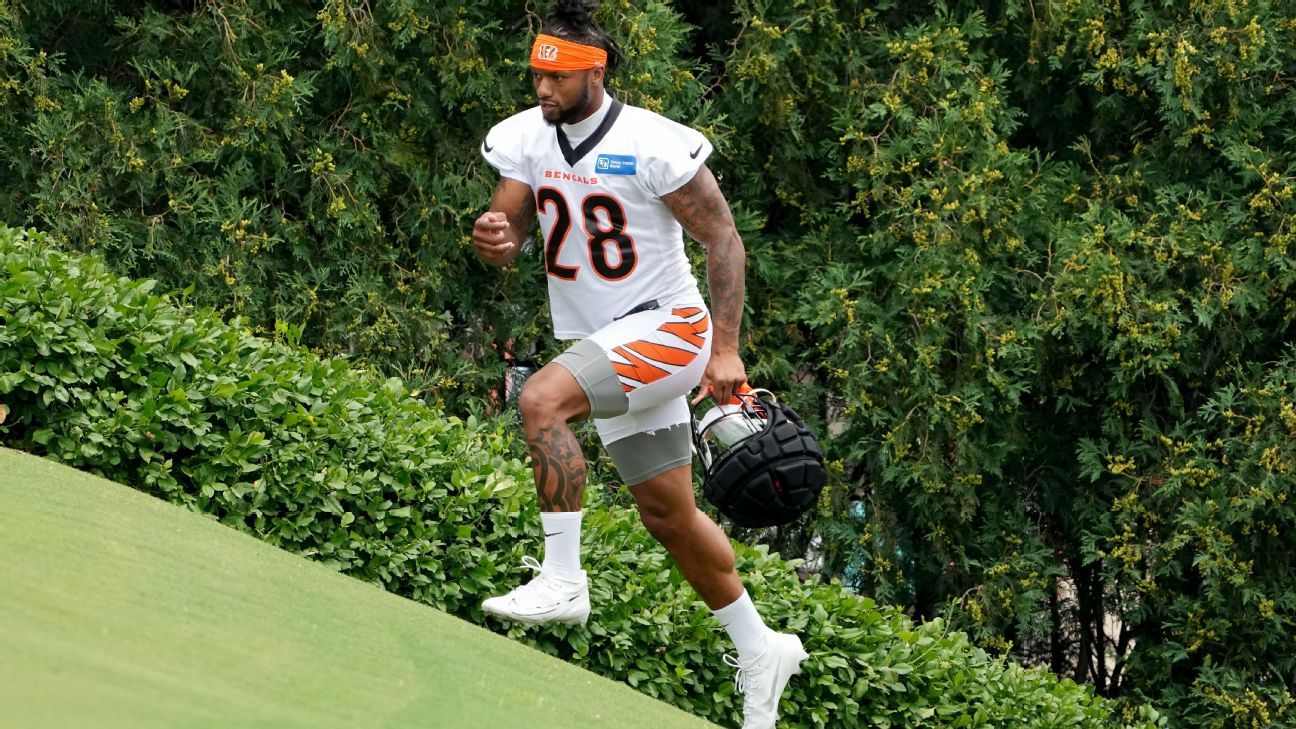
Joe Mixon Legal Problems: Understanding the Controversies
Joe Mixon, a prominent running back in the National Football League (NFL), has faced several legal challenges throughout his career. These incidents have not only impacted his professional trajectory but have also raised significant ethical and legal questions. This article provides a comprehensive analysis of Joe Mixon’s legal problems, examining the details of each incident, the legal consequences, and the broader implications for athletes and the NFL. Our goal is to offer a balanced and thoroughly researched overview, providing readers with a clear understanding of the complexities surrounding these issues.
The 2014 Assault Incident: A Defining Moment
The most widely known and arguably most impactful legal issue involving Joe Mixon is the 2014 assault incident that occurred during his freshman year at the University of Oklahoma. This event cast a long shadow over his career and continues to be a subject of public discussion.
Details of the Incident
On July 25, 2014, Mixon was involved in an altercation with Amelia Molitor, a fellow student, at a local restaurant. Security footage showed Mixon punching Molitor, resulting in multiple facial fractures. The incident quickly gained national attention, sparking outrage and calls for severe disciplinary action.
Legal Proceedings and Consequences
Mixon was charged with misdemeanor acts resulting in gross bodily injury. He entered an Alford plea, acknowledging that the prosecution had sufficient evidence to convict him but not admitting guilt. As a result, he received a one-year deferred sentence, requiring him to complete 100 hours of community service and undergo counseling. He was also suspended from the Oklahoma Sooners football team for the entire 2014 season.
The Release of the Video and Public Reaction
In December 2016, after a lengthy legal battle, the security footage of the incident was released to the public. The graphic nature of the video intensified the controversy and led to widespread condemnation of Mixon’s actions. Many questioned the leniency of his punishment and called for more accountability from the University of Oklahoma and the NFL.
Subsequent Legal Issues and Allegations
While the 2014 assault is the most prominent, Joe Mixon has faced other legal issues and allegations that have contributed to the perception of a troubled past.
2016 Traffic Incident
In 2016, Mixon was involved in a traffic incident where he reportedly confronted a parking attendant. Although no charges were filed, the incident raised concerns about his behavior and temperament.
2023 Aggravated Menacing Charge
In early 2023, Mixon faced an aggravated menacing charge stemming from an alleged incident in Cincinnati. A woman claimed that Mixon pointed a firearm at her during a road rage encounter. While the charge was later dropped, the allegations further tarnished his reputation.
Impact on Joe Mixon’s NFL Career
Joe Mixon’s legal troubles have undoubtedly affected his NFL career, influencing public perception, team decisions, and endorsement opportunities.
Draft Stock and Team Selection
Despite his talent, Mixon’s draft stock was significantly impacted by the 2014 assault. Many teams were hesitant to draft him due to the potential public relations fallout. Ultimately, he was selected by the Cincinnati Bengals in the second round of the 2017 NFL Draft, a move that was met with mixed reactions.
Public Perception and Endorsements
Mixon’s off-field issues have made it challenging for him to secure lucrative endorsement deals. Many companies are wary of associating with athletes who have a history of legal problems, fearing damage to their brand reputation. The public perception of Mixon remains divided, with some fans willing to forgive his past mistakes and others holding him accountable.
NFL’s Response and Policies on Domestic Violence
The Joe Mixon case has highlighted the NFL’s challenges in addressing domestic violence and other off-field misconduct. The league has faced criticism for its inconsistent disciplinary actions and its perceived failure to adequately address these issues. In response, the NFL has implemented stricter policies and increased its efforts to educate players on responsible behavior.
The Role of Legal Representation in Navigating Legal Problems
Navigating legal problems, especially for high-profile individuals like Joe Mixon, requires skilled legal representation. Attorneys play a crucial role in protecting their clients’ rights, minimizing the legal consequences, and managing public perception.
Defense Strategies and Plea Bargains
In the 2014 assault case, Mixon’s legal team negotiated an Alford plea, which allowed him to avoid admitting guilt while still resolving the criminal charges. This strategy helped him avoid a potentially harsher sentence and preserve his eligibility for the NFL Draft.
Public Relations and Reputation Management
Attorneys also play a vital role in managing their clients’ public image. They work to control the narrative, communicate with the media, and mitigate the damage caused by negative publicity. In Mixon’s case, his legal team has attempted to portray him as a changed person who has learned from his mistakes.
Ethical Considerations and Accountability
Joe Mixon’s legal problems raise important ethical considerations about accountability, forgiveness, and the responsibilities of athletes as role models.
The Debate Over Second Chances
The question of whether athletes who commit serious offenses deserve a second chance is a complex and often divisive issue. Some argue that everyone is entitled to forgiveness and an opportunity to redeem themselves. Others believe that athletes should be held to a higher standard of conduct, given their influence and visibility.
The Impact on Victims and the Community
It is essential to consider the impact of Joe Mixon’s actions on the victims and the community. Domestic violence and assault have devastating consequences, and it is crucial to support and empower those who have been affected. Holding perpetrators accountable is essential for preventing future harm and promoting a culture of respect and safety.
Comparing Legal and Disciplinary Actions in Similar NFL Cases
The NFL has a history of dealing with player misconduct, and examining similar cases can offer context to the actions taken regarding Joe Mixon.
Ray Rice and the Domestic Violence Policy
The Ray Rice case, involving domestic violence, led to significant changes in the NFL’s approach to such incidents. Rice initially received a lenient suspension, but public outcry led to a stricter policy and indefinite suspension, showcasing the power of public opinion in shaping disciplinary actions.
Ben Roethlisberger and the Personal Conduct Policy
Ben Roethlisberger faced accusations of sexual assault, leading to a suspension despite no criminal charges. This highlights the NFL’s ability to impose penalties based on its personal conduct policy, even without a conviction.
NFL’s Efforts Towards Prevention and Education
In response to several high-profile incidents, the NFL has ramped up efforts in prevention and education concerning domestic violence and personal conduct.
Training Programs and Workshops
The league provides training programs for players, coaches, and staff, focusing on awareness and prevention of domestic violence, sexual assault, and other forms of misconduct. These programs aim to foster a culture of respect and responsibility.
Partnerships with Advocacy Groups
The NFL partners with various advocacy groups and organizations to support victims of domestic violence and promote healthy relationships. These partnerships provide resources and support for those affected by violence.
The Future of Athlete Conduct and Legal Accountability
The Joe Mixon case and similar incidents underscore the ongoing need for greater accountability and ethical conduct among athletes. As the scrutiny of athletes’ behavior intensifies, it is crucial for leagues, teams, and individuals to prioritize prevention, education, and responsible decision-making.
Increased Scrutiny and Media Coverage
Athletes are under constant scrutiny from the media and the public, and their actions are closely monitored. This heightened level of attention can amplify the consequences of legal problems and make it more challenging for athletes to rehabilitate their image.
The Importance of Mentorship and Support Systems
Providing athletes with strong mentorship and support systems can help them navigate the pressures and temptations of professional sports. Encouraging them to seek guidance and counseling can promote responsible behavior and prevent future legal problems.
Understanding Aggravated Menacing Charges
The 2023 aggravated menacing charge against Mixon, though dropped, warrants a closer look at what such charges entail.
Definition and Legal Elements
Aggravated menacing typically involves knowingly causing another person to believe that the offender will cause serious physical harm to them or their property. The presence of a weapon often elevates the charge.
Potential Penalties and Repercussions
Even if dropped, the initial charge can lead to reputational damage, team sanctions, and difficulties in obtaining endorsements. A conviction can result in jail time, fines, and a criminal record.
The Bengals’ Stance and Team Dynamics
The Cincinnati Bengals’ handling of Mixon’s legal issues reflects the complexities teams face when balancing talent with ethical considerations.
Team Support and Contract Negotiations
The Bengals have largely stood by Mixon, offering him contract extensions and public support. This demonstrates the value they place on his on-field performance, despite the off-field concerns.
Impact on Team Morale and Fan Base
Such support can be divisive, potentially impacting team morale and alienating fans who believe in stricter accountability. Balancing these factors is a constant challenge for team management.
Rehabilitation and Personal Growth
The narrative of rehabilitation is crucial for athletes seeking to move past legal troubles. However, genuine change must be demonstrated through consistent actions.
Community Involvement and Charitable Work
Engaging in community service and charitable work can help athletes demonstrate remorse and a commitment to making amends. However, such efforts must be authentic and not merely performative.
Counseling and Personal Development Programs
Participating in counseling and personal development programs can help athletes address underlying issues and develop healthier coping mechanisms. These programs can be instrumental in fostering lasting change.
The Court of Public Opinion
Beyond the legal system, athletes face the court of public opinion, which can be just as influential in shaping their careers.
Social Media and Public Perception
Social media amplifies both positive and negative news, making it more challenging for athletes to control their narrative. Every action is scrutinized, and missteps can quickly go viral.
The Power of Forgiveness and Redemption
While some may never forgive past transgressions, others are willing to offer a second chance if they see genuine remorse and a commitment to change. Earning that forgiveness requires consistent effort and accountability.
Addressing the Complexities of Athlete Accountability
Joe Mixon’s story serves as a stark reminder of the challenges surrounding athlete accountability and the lasting impact of legal problems. His experiences underscore the importance of responsible decision-making, ethical conduct, and a commitment to making amends for past mistakes. By learning from these experiences, athletes, teams, and leagues can work together to create a culture of accountability and promote positive change.
If you or someone you know is struggling with issues related to anger management or domestic violence, resources are available. Contact the National Domestic Violence Hotline or seek professional counseling for support and guidance.

